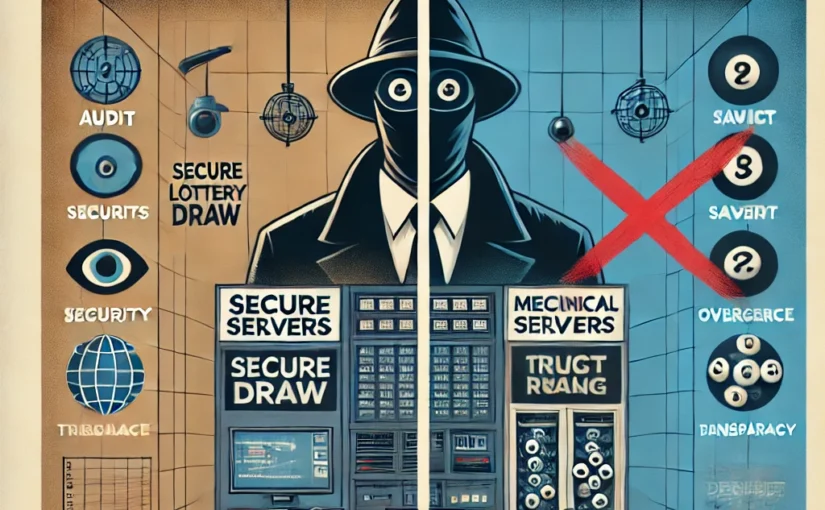Lotteries are built on the promise of fairness and randomness—but when big jackpots are on the line, it’s no surprise that people ask: Are lottery drawings ever rigged? At Dewakoin, we believe in transparency and responsible gaming, so we’re digging into the facts, the myths, and the rare incidents to reveal the truth about lottery rigging.
1. The Short Answer: Very Rarely—But It Has Happened
Modern lottery systems are heavily regulated, audited, and protected, making rigging nearly impossible. However, history shows that a few isolated incidents have occurred due to insider manipulation—not flaws in the system itself.
Examples of Notable Cases:
The Hot Lotto Scandal (2005–2017, USA):
- Eddie Tipton, an employee of the Multi-State Lottery Association, installed malicious code into RNG systems.
- He knew in advance which numbers would be drawn and helped others claim fraudulent wins.
- He was eventually caught after security footage and digital tracking revealed the manipulation.
Pennsylvania Lottery Scandal (1980):
- Known as the “Triple Six Fix.”
- A TV host and conspirators weighted balls to rig the outcome to 666.
- They were caught after unusual betting patterns and confessions.
These incidents led to sweeping changes in lottery security worldwide.
2. Why Rigging Is Nearly Impossible Today
Modern lotteries invest in multi-layered protection systems that make insider fraud extremely difficult.
Key Safeguards Include:
- Third-Party Audits: Independent firms review every draw and RNG system.
- Air-Gapped RNG Machines: Computers used for digital draws are offline, preventing tampering.
- Machine & Ball Randomization: Multiple machines and ball sets are used randomly.
- Surveillance & Logs: Draw rooms are monitored 24/7, and every interaction is logged.
- Separation of Duties: No single employee can access all parts of the system.
Together, these create a zero-trust environment where no individual can manipulate a draw undetected.
3. Can External Hacks or Tampering Occur?
Highly unlikely. Lottery systems are isolated from the internet and protected by advanced encryption.
Cybersecurity Measures:
- Data encryption during ticket sales and result storage
- Secure access protocols for system entry
- Regular penetration testing to identify system vulnerabilities
- Backup and verification systems in case of anomalies
While no system is 100% immune to risk, lottery operators run constant simulations and reviews to ensure the integrity of every draw.
4. Why Lottery Myths Persist
Even with strong security, rumors of rigged results still spread. Why?
Top Reasons People Suspect Rigging:
- Long losing streaks (which are statistically normal)
- Conspiracy theories on social media
- Unusual jackpot winners (e.g., multiple wins by one person)
- Misinformation and scams targeting players
However, none of these claims have held up under proper investigation or scrutiny.
5. What You Can Do as a Player
While you can’t control the draw, you can ensure your play is safe and fair by:
- Buying tickets from authorized outlets or official apps
- Checking results on verified lottery websites
- Signing physical tickets immediately
- Being cautious of any “guaranteed win” systems or tipsters
At Dewakoin, we always recommend playing responsibly and understanding how the system works.
6. Final Thoughts: Trust Built on Oversight, Not Luck
While rare incidents have occurred in the past, today’s lottery systems are built on sophisticated security and independent regulation. Rigging a draw is no longer a matter of clever trickery—it would require beating multiple encrypted, monitored, and audited layers of defense.
At Dewakoin, we stand by fair play. When you play with us, you’re entering a system that prioritizes transparency and trust at every level.
